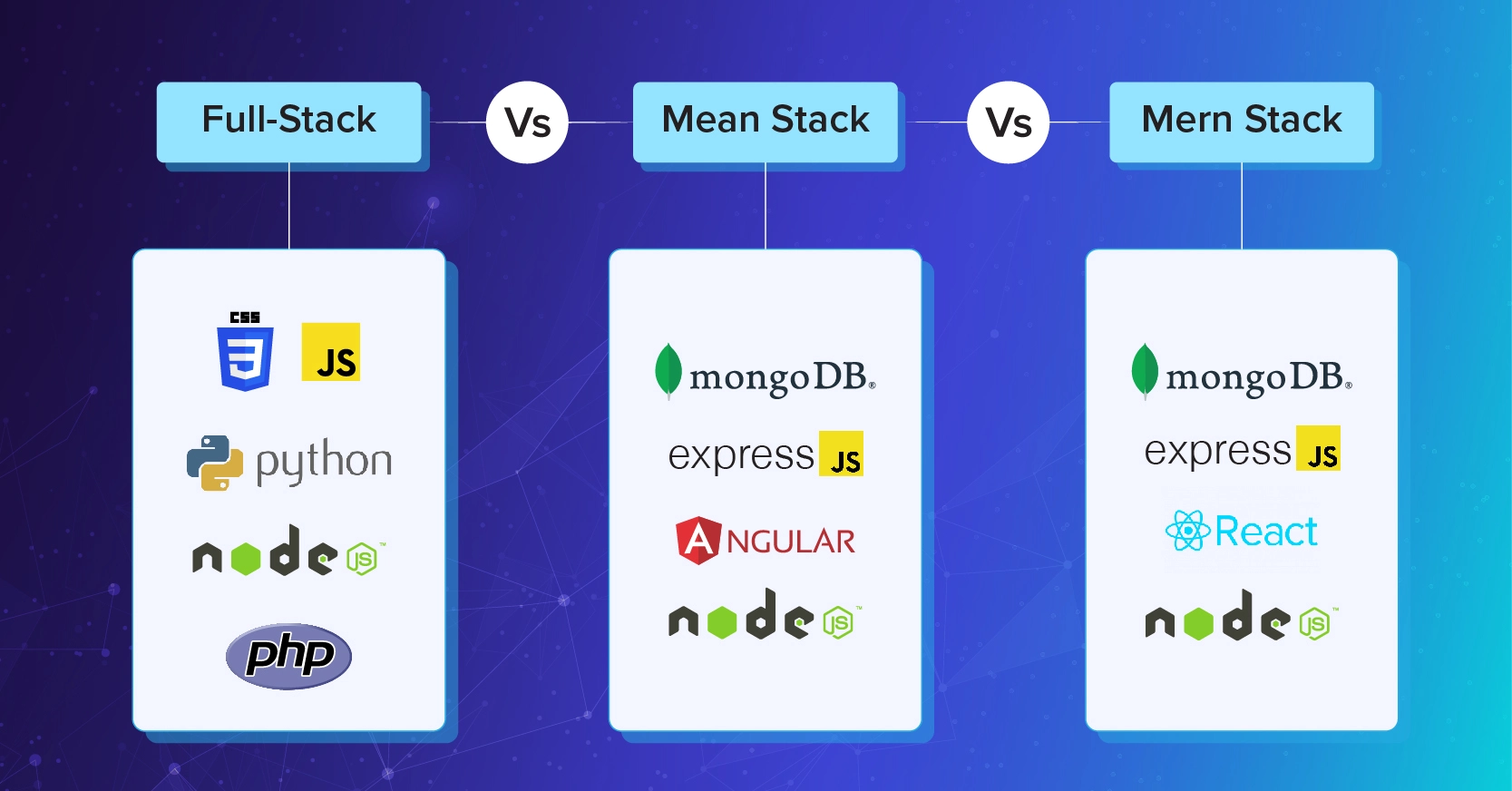The Full Cost of Hiring a Dedicated Full Stack Developer in 2024

If you’re in the tech industry, then chances are you already know the significance of full stack developers.
Data says there are 28.7 million software developers globally as of 2024.
In reality, the USA alone is home to more than four million software developers.
And, full stack developers represent a huge bite of this developer population — a commonplace assumption says at least 25% of all developers are full stack developers.
But, why are they so essential?
What makes them very precious in the IT industry?
What are the blessings of hiring a full stack developer?
Should you hire a full stack programmer?
If yes, at what cost?
How much does it cost to hire full stack developers?
Let’s find solutions to these kinds of questions within the next few minutes.
Table of Contents
Who is a Full Stack Developer?
A full stack developer is someone who knows how to work in both front-end and back-end development.
They have experience in all aspects of application development, including extensive experience with languages, frameworks, and data centers on the front-end and back-end.
This knowledge helps them build both client-side and server-side components.
For example, a full stack designer might use HTML, CSS, and JavaScript for front-end development. However, it can choose to use technologies like Node.js, Express.js, and MongoDB for some jobs in the backend. This means that they can build full stack web apps, like e-commerce platforms, SaaS products, social media platforms, and so on.
What Are The Key Benefits of Hiring Full Stack Developers?
Hiring full stack developers offers multiple benefits to companies, especially to those full stack development services that are short on resources. Let’s see what are the benefits they bring to the table.
1. Versatility in Skillset
Full stack builders possess capabilities across both front-end and back-end development. It allows them to work on various factors of a venture without counting on one developer or specialist. This versatility allows for greater flexibility in task assignments and adaptation to converting project requirements, ultimately leading to faster improvement cycles and smoother assignment execution.
2. Better Efficiency
By having a complete understanding of the complete stack, full stack developers can streamline the development process. They can seamlessly transition between special tasks and technology, putting off bottlenecks and reducing dependencies on other team members. This performance translates to faster project delivery and optimized aid usage. It means maximized productivity and minimized time-to-market.
3. Cost-Effectiveness
Hiring a full stack developer can be cost-effective. It is especially so when compared to assembling a team of specialists for front-end and back-end development. Because, in full stack you only need a single developer who can handle multiple roles, acquire, train, and add companies to maintain separate teams. Additionally, the ability to perform end-to-end development reduces the need for external resources or contractors, further reducing project costs.
4. Improved Communication
Full stack developers have a holistic approach to the development process that makes way for better communication and coordination within the team. Gaps between front-end and back-end teams are effectively bridged from time to time. It ensures the alignment of objectives, priorities, and technical resources. This collaborative, all-encompassing workflow leads to greater efficiency, fewer misunderstandings, and faster problem-solving, increasing project-wide coherence and teamwork.
5. Enhanced Problem-Solving Skills
Full stack developers are usually good at tackling challenges across the entire development spectrum — right from user interface design to database optimization. They can approach problems from multiple angles and devise innovative solutions while also taking both front-end and back-end needs into consideration. This holistic problem-solving approach resolves issues quickly and involves continuous learning and skill development.
6. Easier Maintenance and Scalability
Full-stack developers manage both front-end and back-end components. It optimizes both application maintenance and scaling. They understand the complexity of the entire codebase, making it easier to quickly identify and address issues. Additionally, their knowledge of architecture and design options ensures that scalability considerations are incorporated into the development process from the beginning. It greatly reduces future complexities and enables seamless expansion as the application grows further.
7. Extensive Knowledge
Full-stack developers have a very broad understanding of various programming languages, frameworks, and technologies. This deep knowledge is what is needed for informed decisions about technology stack choices, architecture, and implementation strategies. Moreover, participatory tools and processes provide rich insights. So they can build high-quality, robust solutions that meet both functional and non-functional needs.
8. Faster Project Deployment
By combining front-end and back-end development skills, full stack developers can provide for faster deployment of web applications. They can independently handle the entire development lifecycle, from prototyping and coding to testing and deployment, without waiting for handover between teams. This streamlined approach reduces development iterations and deployment latency, and provides fast time to market, and ensures that the product reaches users quickly.
6 Factors Affecting the Cost of Hiring a Full-Stack Developer
Finding the right full-stack developer for your project can feel a bit tedious process.
However, understanding the factors that influence the cost can make this process a lot smoother.
Let’s dive into the key aspects that determine how much you’ll spend to hire a full stack developer.
1. Experience and Skill Level of Software Developers
Experience matters.
A junior developer with a year or two of experience will charge less compared to a seasoned professional with a decade under their belt.
However, it’s not just about years in the field; it’s about the depth of their skill set.
Full-stack developers proficient in multiple programming languages, frameworks, and tools can command higher fees because they bring more value to your project.
Here’s a quick overview:
| Position | Experience | Average Salary | Hourly Rate | Key Skills |
| Junior Full-stack Developer | 1-3 years | $60,000 to $80,000 | $25 to $40 | Basic front-end & back-end |
| Mid-Level Full-stack Developer | 3-5 years | $80,000 to $110,000 | $40 to $60 | Advanced JS frameworks, APIs |
| Senior Full-stack Developer | 5+ years | $110,000 to $140,000 | $60 to $85 | Complex database management |
| Lead Full-stack Developer | 10+ years | $140,000 to $180,000 | $85+ | System architecture, team lead |
Full-stack developers charge between $20 and $60 per hour on average. Those with greater experience may charge upwards of $100, depending on their education, technical abilities, and framework knowledge.
Think of it like hiring a chef; a seasoned chef with expertise in diverse cuisines will likely cost more than a novice who can only make a few dishes.
Recommended Reading
2. Cost to Hire a Full-Stack Developer Across the Globe
Where your developer is based plays a significant role in cost. Developers in North America and Western Europe tend to charge higher rates than those in Asia or Eastern Europe.
For instance, the hourly rate for hiring a full-stack developer in North America typically ranges between $81 and $100. These rates can go up to $160 per hour for highly experienced developers. In India, rates might range from $20 to $40 per hour.
Here’s a quick comparison:
| Geographic Location | Average Salary | Hourly Rate | Additional Costs |
| Asia | $15,000 to $50,000 | $20 to $45 per hour | Lower living costs, fewer benefits |
| North America | $90,000 to $160,000 | $50 to $200 per hour | Higher living costs, extensive benefits |
| New Zealand and Australia | $80,000 to $120,000 | $60 to $100 per hour | Moderate living costs, some benefits |
| Eastern Europe | €25,000 to €60,000 | €25 to €85 per hour | Lower living costs, few benefits |
| Western Europe | €60,000 to €120,000 | €50 to €100 per hour | Higher living costs, good benefits |
However, cheaper doesn’t always mean better. It’s essential to weigh the cost against the quality and reliability of the work.
3. Project Complexity and Size
A small project with clear requirements and a simple structure will naturally cost less than a large, complex project with multiple features and integrations. If your project requires extensive back-end development, complex database management, or intricate user interfaces, expect to pay more.
Let’s break it down:
Small Project: $5,000 – $20,000
Medium Project: $20,000 – $50,000
Large Project: $50,000 and above
Additionally, projects that need ongoing maintenance and updates will also increase the overall cost.
4. Company Size and Reputation
Big names come with big price tags. Hiring a developer from a renowned tech company or an established agency will typically cost more than hiring a freelancer or a developer from a smaller firm.
Why?
Established companies often offer additional benefits such as project management, quality assurance, and a team of experts. On the flip side, smaller companies or individual freelancers can provide a more personalized experience and sometimes more flexibility.
5. Demand and Market Trends
The tech industry is dynamic, and demand for certain skills can fluctuate. If there’s a high demand for full-stack developers with expertise in a particular technology, prices can soar.
For example, developers proficient in newer technologies like Node.js or React may charge more than those specializing in older frameworks.
According to Glassdoor, the hourly rate for full-stack developers typically ranges between $26 and $66 per hour.
However, in today’s fast-paced business world, having a full-stack developer is an asset to your team, and the investment often pays off in quality and efficiency.
The average full-stack developer salary in the USA is approximately $120,000 per year or $57.69 per hour.
Entry-level positions start at around $100,000 per year, while the most experienced developers can earn up to $155,000 per year. According to Google, the yearly pay for a full-stack developer in the United States is approximately $165,385, which is 44% above the national average.
6. Assistance and Social Security Nets
Finally, the nature of the contract can influence costs. Long-term contracts or full-time hires may come with lower hourly rates compared to short-term or project-based contracts.
Additionally, hiring a developer on a retainer basis can sometimes offer cost benefits and ensure availability when you need them.
Here’s an example:
| Contract Type | Cost Implication | Flexibility |
| Full-time Hire | Lower hourly rate | Less flexibility |
| Short-term Contract | Higher hourly rate | High flexibility |
| Retainer Basis | Cost benefits, availability | Moderate flexibility |
Understanding these factors can help you make an informed decision when hiring a full-stack developer. Balancing cost with the quality of work and the specific needs of your project is key.
Remember, investing in a skilled developer can save you time and money in the long run by ensuring your project is done right the first time.
How Much Does it Cost to Hire Full Stack Developers in 2024?
In 2024, the cost of hiring full stack developers greatly differs and it depends on so many factors. For instance, there’s a difference between hiring a full stack developer from New York (which may cost you at least $141,049) and Boston — where hiring a full stacker can cost you $115,000 per year. We can understand this premium is mainly because of the high cost of living in NYC compared to Boston.
Years of experience is another factor that massively influences the cost to hire full stack developers in 2024.
For example, a full stack engineer with 6 years of experience can expect an average salary of about $120,000 per year. On the other hand, someone with less than a year of experience might be asking at least $81,910 on average.
Furthermore, gender differences also play their parts in salary disparities. An average female Full Stack developer earns $140,403 per year in the United States. However, their male counterparts earn about $137,793 ($3000 less than females).
So, we have summarized the average cost of hiring full stack developers across different countries in the table below. (All data sourced from Glassdoor).
Furthermore, gender differences also play their part in salary disparities. An average female Full Stack developer earns $140,403 per year in the United States. However, their male counterparts earn about $137,793 ($3000 less than females).
So, we have summarized the average cost of hiring full stack developers across different countries in the table below. (All data sourced from Glassdoor).
| Country | Average Cost of Hiring Full Stack Developer (Per Year) | |
| Minimum ($) | Maximum ($) | |
| United States | $73K | $100K |
| United Kingdom (London) | £30K | £70K |
| Australia | AUD 89K | AUD 125K |
| Brazil | BRL 10K | BRL 29K |
| Europe | €117K | €129K |
| Canada | $80K | $120K |
| UAE | AED 9.5K /Month | AED 39K/Month |
| India | $5,800 (480K INR) | $12,900 (1100K INR) |
As you can see, the cost of hiring full stack developers can vary greatly based on a variety of factors — geography, years of experience, gender, in-house expertise, and, of course, the demands of the project.
Why Choose CONTUS Tech to Hire Full Stack Developers For Your Project?
Hiring the best company for full stack developers can be tricky, given the fierce competition and high demand for these professionals in the job market. But with CONTUS Tech, it doesn’t have to be.
At CONTUS Tech, over the past decade-plus, we’ve consistently delivered mission-critical and time-sensitive full stack projects to hundreds of businesses.
Our elite, closely-knit team of 300+ full stack developers (from the top 3.5 %) have served businesses in 40+ countries across 5 continents.
Our clientele includes some of the industry’s big names, including numerous Fortune 500 firms like ICICI Bank, Hyundai, Tata, Daimler Trucks, Coca-Cola, Abu Dhabi Commercial Bank, and many others (you can check our case studies to learn more).
We take pride in our ability to uphold the same values and deliver the same level of excellence for your project too.






Great blog!!! Its a super helpful content if you’re thinking about hiring a full stack developer. It breaks down all the costs involved so you know what to expect. Really saved me some headache!
I had no idea about the differences between hiring a dedicated full stack developer and a freelancer until I read this blog. Now I see why having a dedicated person can be worth the extra cost in the long run.
I’m glad the blog helped! A dedicated full stack developer offers consistency and a deeper project understanding, making them a great long-term investment despite the higher cost.
I’m so glad this blog talked about negotiating with full stack developers. It’s something I’ve been nervous about, but now I feel more confident going into those conversations.
Hi Tyler
Glad to hear the blog boosted your confidence!
The case studies were a nice touch. Seeing how other businesses benefited from hiring full stack developers helped me understand the real value they bring to a project.
I’m in the middle of hiring a full stack developer, and you gave me a clear idea of what to consider through this blog. Loved how they explained different pricing options and how to negotiate. Super practical!
Hi Reece,
Glad to hear the blog was helpful! Good luck with your hiring process!
The cost-benefit analysis section was super helpful. It made me think about the bigger picture and how hiring a full stack developer could impact my project in the long term.
Great breakdown of hiring costs for full stack developers! Very informative.
The detailed cost analysis in this blog is exactly what I needed. Great job!
Excellent breakdown of regional cost differences! It’s crucial to consider these variations when planning our budget for hiring a developer.
Absolutely! Understanding regional cost differences can make a significant impact on budget planning. It’s great that the blog covered this aspect so thoroughly.
This article clarified a lot of my doubts about full stack development costs. The insights on long-term investment versus short-term savings are especially valuable.
Glad to hear the article helped clear up your doubts! It’s great that the long-term vs. short-term insights were useful. Thanks for sharing your feedback!
I appreciate the detailed explanation of skill levels and how they impact costs. It’s helpful to know what to expect when hiring junior vs senior developers.
Hiring full stack developers seems cost-effective. You get a lot of value from someone who can work on all aspects of a project.
Absolutely right Logan! Hiring full stack developers is a smart choice. They offer great value by handling both front-end and back-end tasks, streamlining your project and cutting costs.
I didn’t realize the salary range for full stack developers was so varied depending on location. It really shows how much geography can impact hiring costs.
It’s surprising how location can shift salary ranges for full stack developers. It highlights just how geography plays a big role in hiring costs, making it crucial to consider regional differences when budgeting for your development team.
Experience levels definitely impact hiring costs. It’s good to know what to expect when budgeting for a full stack developer.
Seeing the cost differences across countries is enlightening. Outsourcing could be a viable option for cost-effective full stack development.
Considering the high demand, it’s clear why full stack developers are so essential. Their adaptability and efficiency are unmatched.
How does location impact the cost of hiring full stack developer?
Developer rates vary by location; those in high-cost areas command higher salaries compared to developers in regions with lower costs of living, affecting overall hiring costs.
How does hiring a full stack developer save on costs compared to hiring separate front-end developers and back-end developers?
Hiring a full stack developer is cost-effective since they handle both front-end and back-end tasks, eliminating the need for multiple specialists and reducing overall project costs.
What is the average cost to hire a full stack developer in different countries?
The average cost to hire a full stack developer differs globally. For instance, developers in the US and UK($70,000 to $120,000/yr) generally command higher salaries compared to other countries.